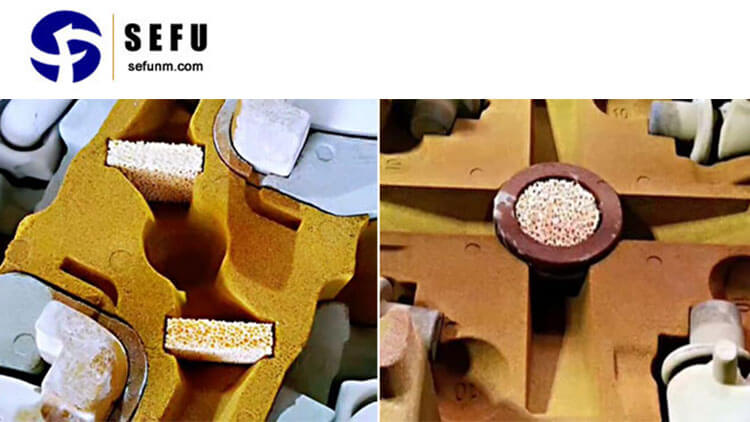Balancing Adsorption Capacity and Resistance: Choosing the Optimal Thickness for Ceramic Foam Filters in Metal Casting Processes
In the metal casting processes, the selection of ceramic foam filters plays a pivotal role in ensuring the quality and efficiency of the casting operations. One critical aspect that demands careful consideration is the thickness of these filters, as it directly impact both adsorption capacity and resistance to fluid flow. Achieving the perfect equilibrium between these two factors is paramount for optimizing filtration performance.
Understanding the Factors at Play
When deliberating on the ideal thickness of ceramic foam filters, several key factors come into play:
- Adsorption Capacity Requirements: Determining the volume and size of impurity particles to be dealt with is crucial in establishing the necessary adsorption capacity. Thicker filters typically boast a greater adsorption capacity, enabling them to handle a larger quantity of impurities.
- Fluid Resistance: The thickness of the filter has a direct bearing on the resistance encountered by fluid passing through. Thicker filters often result in higher resistance, potentially impeding fluid flow rates.
- Process Specifications: Understanding the requirements of the casting process aids in defining the desired flow rates. Certain processes necessitate higher flow velocities, whereas thicker filters may hinder these velocities. Hence, a delicate balance is required to align these considerations.
- Experimental Validation: Conducting experiments and tests to evaluate the adsorption capacity and resistance of filters with varying thicknesses is instrumental in determining the optimal thickness.
- Expert Consultation and Recommendations: Seeking insights from manufacturers or industry experts regarding the recommended thickness for specific applications can provide valuable guidance. Manufacturers typically offer suggested thickness ranges tailored to different applications.
- Balancing and Adjustment: Real-world applications may entail the need for fine-tuning and adjustments. Adapting the filter thickness based on actual performance outcomes is essential for achieving the best adsorption capacity and fluid flow characteristics.
Striking the Right Balance
In the quest for the perfect filter thickness, the delicate balance between adsorption capacity and resistance emerges as a critical factor. By amalgamating adsorption capacity requirements, fluid resistance considerations, process specifications, experimental validations, expert counsel, and on-the-ground adjustments, one can pinpoint the optimal thickness for ceramic foam filters in metal casting processes. This meticulous approach ensures that the filters deliver peak performance, enhancing the quality and efficiency of metal casting operations.
By meticulously balancing adsorption capacity and resistance, businesses can elevate their metal casting processes to new heights of efficiency and quality, setting the stage for enhanced productivity and superior end products in the dynamic landscape of modern manufacturing.


